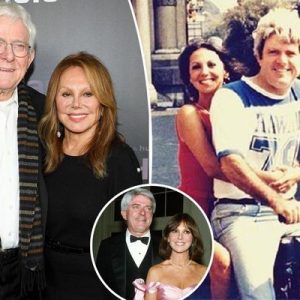Manning, revered as one of the greatest quarterbacks of all time, has long been a sought-after figure for endorsement deals and brand partnerships. His affable demeanor, impeccable reputation, and widespread appeal have made him a natural fit for a wide range of advertising campaigns and sponsorship opportunities. However, his decision to align himself with Bud Light, a decision that seemed promising at first, has proven to be a costly misstep.
The Bud Light commercial in question, which aired during a highly anticipated sporting event, was intended to be a lighthearted and entertaining showcase of Manning’s comedic talents. However, the ad’s reception among viewers and critics was less than favorable, with many expressing disappointment and even disdain for what they perceived as uninspired and tone-deaf humor. As a result, Bud Light saw a significant backlash from consumers, leading to a decline in sales and a tarnishing of the brand’s reputation.
For Manning, the fallout from the Bud Light commercial has been particularly devastating on a financial level. Despite his considerable wealth amassed during his NFL career and subsequent ventures in broadcasting and business, the loss of nearly $10 million due to the commercial’s failure has dealt a significant blow to his finances. Reports suggest that Manning’s net worth has taken a hit as a result, prompting speculation about his financial future and whether he may be at risk of facing financial difficulties.
The implications of Manning’s financial losses extend beyond his personal wealth to his broader reputation and legacy. Long revered as a savvy businessman and astute investor, Manning’s perceived misstep with the Bud Light commercial has called into question his judgment and decision-making abilities in the eyes of some observers. While he remains one of the most beloved figures in sports history, the commercial’s failure serves as a sobering reminder of the unpredictable nature of the advertising industry and the risks associated with celebrity endorsements.
The Dylan Mulvaney fiasco serves as another factor in Manning’s financial downturn. Bud Light’s previous social media promotion with the transgender influencer backfired, resulting in public outcry and accusations of insensitivity. This incident likely contributed to Bud Light’s increased scrutiny and heightened pressure to deliver successful marketing campaigns, potentially influencing their decision-making process regarding the commercial featuring Manning.
In response to the backlash and financial losses stemming from the Bud Light commercial, Manning has remained relatively tight-lipped, offering little in the way of public comment or explanation. However, sources close to the former quarterback suggest that he is deeply disappointed by the commercial’s reception and the impact it has had on his financial standing. Despite his considerable wealth and success, Manning’s recent setback serves as a humbling reminder of the importance of carefully vetting endorsement deals and ensuring alignment with personal values and brand image.
Looking ahead, Manning faces the daunting task of rebuilding his reputation and restoring his financial stability in the wake of the Bud Light commercial’s failure. While his track record of success both on and off the field suggests that he is more than capable of bouncing back from adversity, the road ahead may be fraught with challenges and uncertainties. As he navigates this challenging chapter in his career, Manning will undoubtedly draw upon the resilience and determination that have defined him as one of the greatest athletes and businessmen of his generation.
In conclusion, Peyton Manning’s recent financial losses following a failed endorsement deal with Bud Light serve as a cautionary tale for celebrities and athletes considering endorsement deals. While the allure of lucrative partnerships may be tempting, the potential risks and consequences of aligning oneself with the wrong brand cannot be underestimated. As Manning grapples with the fallout from this setback, he serves as a reminder that even the most successful and revered figures are not immune to the pitfalls of the advertising industry.



